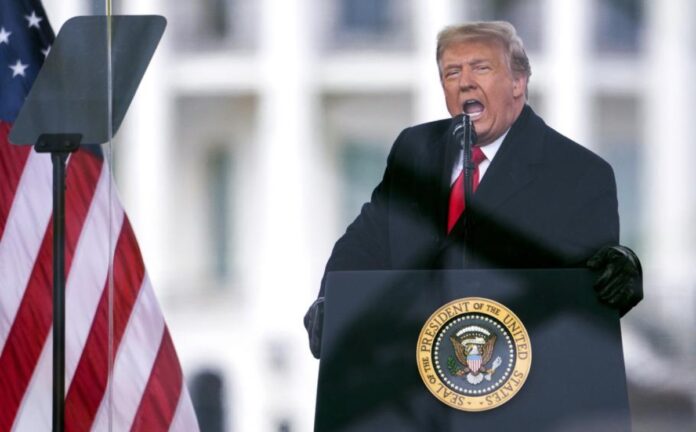The recent remarks by former US President Donald Trump regarding NATO’s financial contributions have ignited a fiery debate on both sides of the Atlantic. While Trump’s stance might seem controversial to some, it brings to light fundamental questions about the nature of the alliance and each member’s commitment to its collective defense.
Trump’s assertion that the United States should not be obligated to defend NATO members who fail to meet their financial obligations has drawn sharp criticism from European leaders. They argue that such statements undermine the solidarity and security guaranteed by NATO’s Article 5, which stipulates that an attack on one member is considered an attack on all.
However, Trump’s remarks raise valid points about the financial burden-sharing within NATO. The alliance operates on the principle that member states should allocate at least 2 percent of their Gross Domestic Product (GDP) towards defense spending. Yet, many European countries have consistently fallen short of this target, relying heavily on the United States to fill the gap.
Critics of Trump’s position may argue that the 2 percent target is merely a guideline, not a binding obligation. However, adherence to this target is crucial for demonstrating a collective commitment to NATO’s goals and deterring potential adversaries. By failing to meet their financial responsibilities, some NATO members risk eroding the alliance’s credibility and unity.
Moreover, Trump’s call for increased financial contributions is not indicative of US unilateralism but rather a desire for equitable burden-sharing among alliance members. The United States currently allocates a significant portion of its GDP to defense spending, far exceeding the 2 percent benchmark.
Trump’s demand for fairer burden-sharing is not unreasonable but rather reflects a desire for greater equity and shared responsibility within the alliance.
European countries must recognize the importance of meeting their financial commitments to NATO, not only as a sign of solidarity but also as a means of strengthening the alliance’s deterrence capabilities. In an increasingly uncertain security environment, NATO must demonstrate unity and resolve to deter potential adversaries and protect member states’ security interests.
Furthermore, European countries should not view the United States as a sole guarantor of their security but rather as a partner in a collective defense effort. Developing robust defense capabilities within Europe is essential for enhancing the alliance’s overall effectiveness and reducing its dependence on external actors.
Beyond military preparedness, European countries must also address other strategic vulnerabilities, such as energy dependence on Russia. Relying on adversarial countries for critical energy supplies undermines Europe’s security and sovereignty. Diversifying energy sources and investing in domestic energy production are essential steps towards enhancing Europe’s strategic autonomy.
While Trump’s comments may have sparked controversy, they have brought attention to important issues regarding NATO’s future and member states’ commitments. European countries must heed Trump’s call for increased burden-sharing and take concrete steps to strengthen the alliance’s collective defense capabilities. By doing so, NATO can remain a cornerstone of international security and uphold its commitment to safeguarding the interests of its member states.
There is a English proverb: “Beggars have no choice”. It refers to someone who asks for charity but is picky about what forms of aid are acceptable or has specific demands while panhandling. This is exactly how many European politicians and heads of state that are reacting to Trump’s comments this week about NATO appear to be: beggars with conditions.




